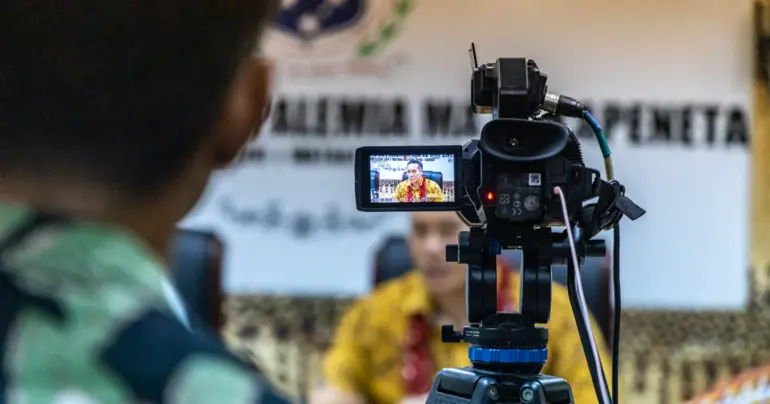An opportunity for growth: Addressing financial inclusion for Pacific Island countries
Essential to the growth of the global economy is the ongoing collaboration between financial markets, regions, and countries, as it opens trade opportunities, strengthens innovation through diverse expertise, and optimises production processes. And although positive steps forward are being taken to improve this collaboration, one region continues to face financial and economic exclusion – the Pacific Islands.
Pacific Island countries have overcome a range of challenges in recent times, and are building on economic momentum post pandemic, predominantly from tourism and remittance, to improve their financial inclusion globally. However, this cannot be achieved individually, and there is a need for global action to develop an inclusive relationship financially with the likes of Samoa, Tonga, and many more countries.
What leads to financial exclusion?
Financial exclusion predominantly takes place as a step to reduce risk within financial markets. Many different countries have strict regulatory requirements and laws, which means countries and markets looking to collaborate must abide by these regulations. For smaller, growing countries, this can be difficult and costly, as their financial markets can often not be regulated to the same extent, ultimately leading to exclusion from financial collaboration as they can be deemed a risk.
This creates debanking, a situation where global banks and financial institutions will pull out of countries they see as too risky. The most common reason for debanking is when a market is viewed as too susceptible to financial crime – such as fraud, money laundering, and terrorist financing – as they cannot verify payors or payees, or comply with Know Your Customer (KYC) and Anti-money Laundering (AML) standards. Although safe banking is essential, fixing challenges like this is very hard for many Pacific Island countries.
Current challenges taking place for the Pacific Islands region
The biggest challenge for financial inclusion across Pacific Islands comes from the ability to verify account holders. Many Pacific Island citizens do not hold any official documentation of their identity such as a passport, birth certificate, driver’s license, etc, making it extremely difficult determining the legitimacy of account holders. Without the ability to accurately know where and to whom money is being sent too, it becomes too much of a risk of financial crime for global markets.
Furthermore, no national ID systems, although in the works for Samoa, means citizens of Pacific Island countries are unable to set up bank accounts , leading to further financial exclusion, and has ultimately led to economies relying on cash.
Financial exclusion can have a range of impacts. Beyond the effects on relationships between countries, it can also influence the growth and stability of economies. Financial exclusion stops Pacific Island countries from completing cross-border transactions with a range of markets. This leads to suppressed international trade, and hinders organisations and citizens from purchasing supplies, resources, and necessities abroad. All this, affecting the ability of Pacific Island economies to grow.
Therefore, to move forward and increase global financial inclusion, it will require support from neighbouring countries and regions to drive this change forward.
Achieving financial inclusivity together
Much like any challenge the financial industry faces, collaboration between markets and financial institutions ultimately provides the best solution to moving forward. No different when addressing financial inclusion, improved collaboration across Oceania and globally will help strengthen the financial inclusion for Pacific Island countries.
Currently, when global financial regulators determine a country’s financial risk it presents a double-edged sword, as it is also determined by whether a country collaborates with a “high-risk” market. This means for change to occur, it requires low risk financial markets to temporarily affect their risk rating to help improve the rating of another market, such as a Pacific Island country.
Australia and New Zealand, being in the Pacific Islands region and holding strong relationships with international financial markets, can lead this collaboration. In July this year, key relevant stakeholders from the Pacific Island region including policymakers, regulators, commercial banks, and technical assistance providers will come together at the Pacific Banking Forum in Brisbane to address the urgent problems of ‘de-risking’ and the decline of correspondent banking relationships in the Pacific.
Furthermore, investing in a digital future has also become imperative to the growth of Pacific Islands’ presence. Moving forward, the consideration of digital currencies, payments, and identities will all take place, as they contribute to strong identity verification, and improve the ability to comply with international laws and regulation. However, to achieve this, it will require support during adoption, and through its early stages.
Moving forward
Despite challenges faced, Pacific Island Countries are primed for change, and ready to enhance their banking relationships with global markets. Following continual collaboration within the industry to set up the right frameworks and strategy – especially with Australia and New Zealand – as well as national changes for identification, Pacific Island countries will be able to integrate better into the global financial industry, bringing newfound economic growth and stronger relationships with economies across the region.
Suresh Rajalingam is the Head of Oceania at Swift.











